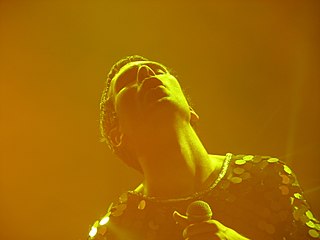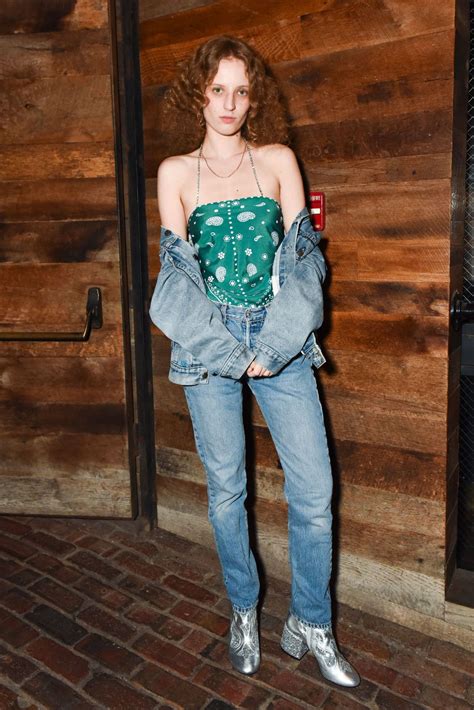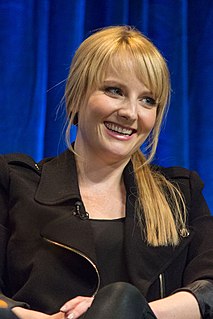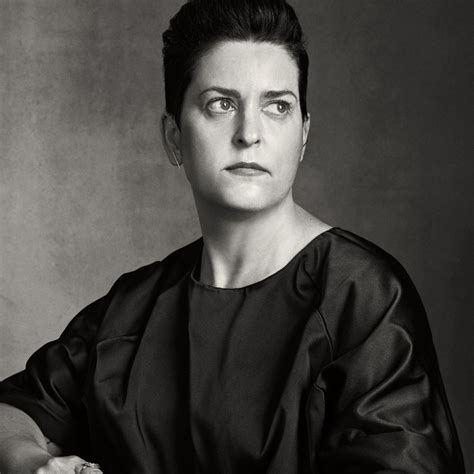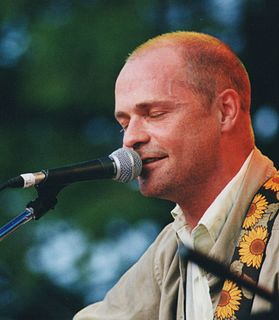A Quote by Jamie Lidell
I can see that in retrospect but I guess I've always had such an identity crisis when it comes to other people's understanding of me.
Quote Topics
Related Quotes
I guess I've always had such an identity crisis when it comes to other people's understanding of me. I don't feel it in myself but from an outsider's point of view, I can see they must be thinking, "Who the hell does this guy think he is?" But recently I've been thinking, okay, a white guy can't sing soul, but would a black person be made exempt from singing opera because it's not a tradition that belongs to them? It's the same kind of argument.
I didn't really have an identity crisis because I really, really knew who I always wanted to be But I definitely had a lot of problems with my body. I was very skinny, and I guess my body was sort of pre-pubescent, but when I grew hips and thighs, I just didn't know where I was in the world. It was weird.
I think that obviously the quest for purpose, or meaning, or understanding to existence is something that I always think about, always deal with. I guess everybody does - that existential crisis of human condition. It's nothing new. But I'd love to come across something that really made me believe in something.
I always had a sense that I would fall in love with Tokyo. In retrospect I guess it's not that surprising. I was of the generation that had grown up in the '80s when Japan was ascendant (born aloft by a bubble whose burst crippled its economy for decades), and I'd fed on a steady diet of anime and samurai films.
I guess what I like in my movies is where you see a character change by maybe two degrees as opposed to the traditional movie change of ninety degrees. I guess that always feels false to me in movies because that doesn't truly happen. Around me, at least in the life I live, I guess I don't see people change ninety or a hundred degrees. I see them change in very small increments. I think it's just a monitor I might have on myself as a writer to not make any false scenes.
Part of me always felt like the other, the outsider, the observer. My father had two sons with his second wife, who I didn't meet until my late 20s. I was always on the periphery. In Madrid, I was the only Turk in a very international school, so I had to start thinking about identity. All these things affected me.
I don't view myself as a particularly intelligent people, but I do have one ability that I've demonstrated over and over again, that's helped me see things that other people for whatever reason have not seen. That's that most people see what they expect to see, what they want to see, what conventional wisdom tells them to see. I guess it could be stated that most people only hear the music, not the lyrics of human events.
More platform-sensitive generations will make distinctions between online and in-person intimacy, whereas fourteen-year-olds have very nuanced online selves and might embody their virtual identity in the physical, analogue version of themselves. They have a much more pluralistic understanding of the self. I don't think we'd be here now in this amazing sexual and gender revolution without the online space where young people can see and share other versions of identity and sexuality.
